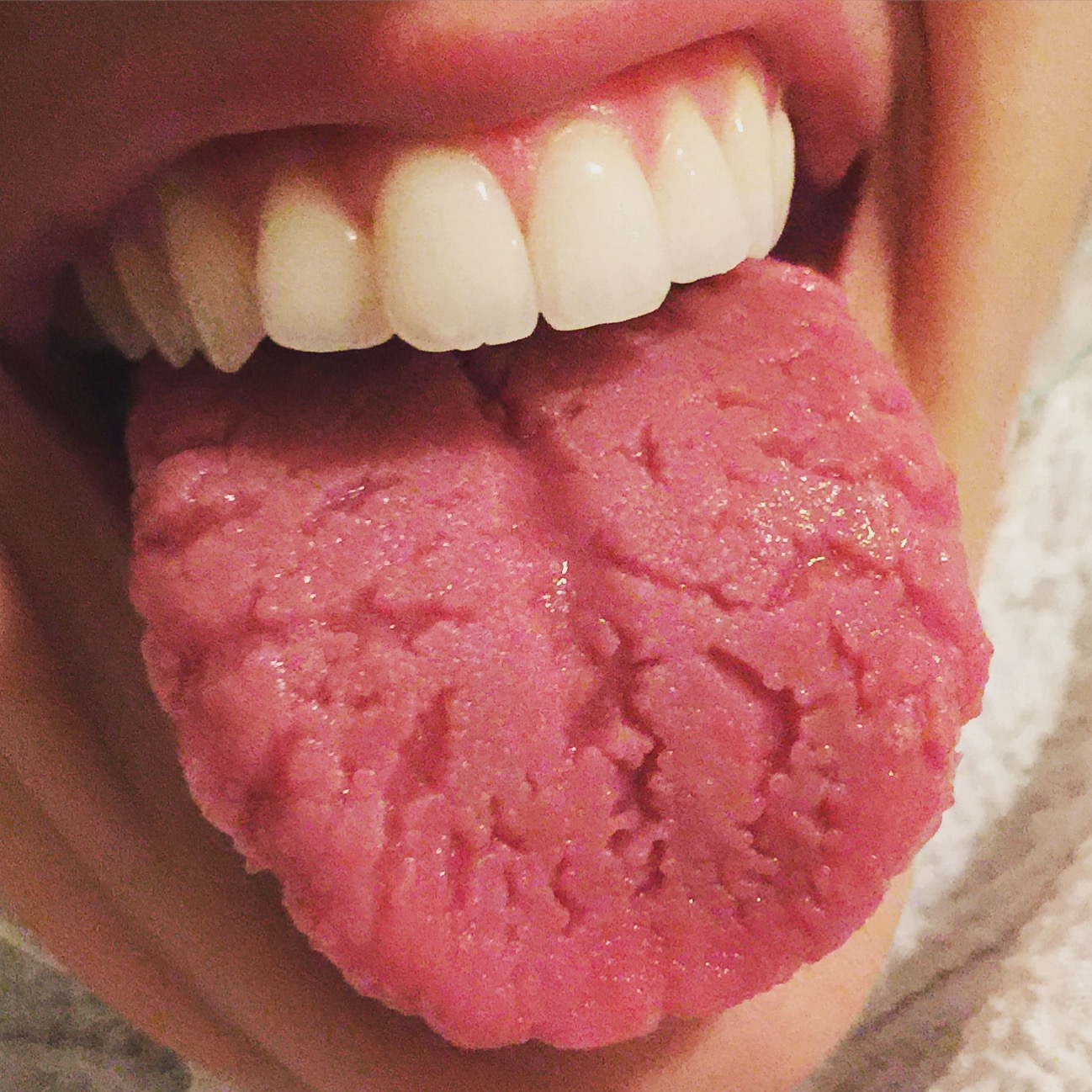Fissured Tongue: Symptoms, Causes, Treatment
What are the symptoms of a fissured tongue?
A fissured tongue, also known as lingua plicata or scrotal tongue, is a benign condition characterized by one or more deep grooves, furrows, or fissures on the surface of the tongue. These grooves can vary in depth and appearance and may come and go over time.
The condition is usually painless and does not typically cause any symptoms. However, some people with a fissured tongue may experience:
- Sensitivity to certain foods: The grooves on the tongue can trap food particles, which may cause irritation or discomfort when eating certain foods.
- Bad breath: Food particles trapped in the grooves can also contribute to bad breath (halitosis).
- Glossitis: In some cases, the fissures may become inflamed, leading to glossitis, which is inflammation of the tongue that can cause redness, swelling, and discomfort.
It’s important to note that a fissured tongue is usually harmless and does not require treatment. However, good oral hygiene practices, such as brushing the tongue gently and thoroughly, can help prevent food particles from getting trapped in the grooves and reduce the risk of complications such as bad breath or glossitis. If you have any concerns about your tongue or oral health, it’s best to consult with a dentist or healthcare provider for an accurate diagnosis and appropriate management.
What are the causes of a fissured tongue?
The exact cause of a fissured tongue is not well understood, but it is believed to be a congenital or developmental condition that becomes more prominent with age. Some factors that may contribute to the development of a fissured tongue include:
- Genetics: Fissured tongue tends to run in families, suggesting a genetic predisposition to the condition.
- Age: Fissures on the tongue may become more pronounced with age.
- Environmental factors: Certain environmental factors, such as tobacco use, poor oral hygiene, and irritation from hot or spicy foods, may exacerbate the condition.
- Underlying medical conditions: Fissured tongue has been associated with certain medical conditions, including psoriasis, Down syndrome, Sjögren’s syndrome, and geographic tongue (benign migratory glossitis). However, the relationship between these conditions and fissured tongue is not well understood.
It’s important to note that a fissured tongue is usually harmless and does not require treatment unless it is causing symptoms such as discomfort or difficulty with oral hygiene. If you are concerned about your tongue or have persistent symptoms, it’s best to consult with a healthcare provider or dentist for an accurate diagnosis and appropriate management.
What is the treatment for a fissured tongue?
Treatment for a fissured tongue is usually not necessary, as the condition is typically harmless and does not cause any symptoms in most cases. However, if you are experiencing discomfort or other symptoms associated with a fissured tongue, your healthcare provider may recommend the following:
- Good oral hygiene: Brushing your teeth and tongue regularly and using a tongue scraper can help remove food particles and debris from the fissures, reducing the risk of irritation and bad breath.
- Mouthwash: Antiseptic mouthwashes can help reduce the risk of infection and keep the mouth clean.
- Avoiding irritants: Avoiding hot, spicy, or acidic foods and beverages that may irritate the tongue can help reduce discomfort.
- Topical treatments: In some cases, your healthcare provider may recommend applying a topical corticosteroid or antifungal medication to reduce inflammation or treat any underlying infections.
- Dietary changes: Some healthcare providers may recommend dietary changes, such as increasing your intake of fruits and vegetables, to improve overall oral health.
It’s important to consult with a healthcare provider or dentist for an accurate diagnosis and appropriate management if you have any concerns about your tongue or oral health.




